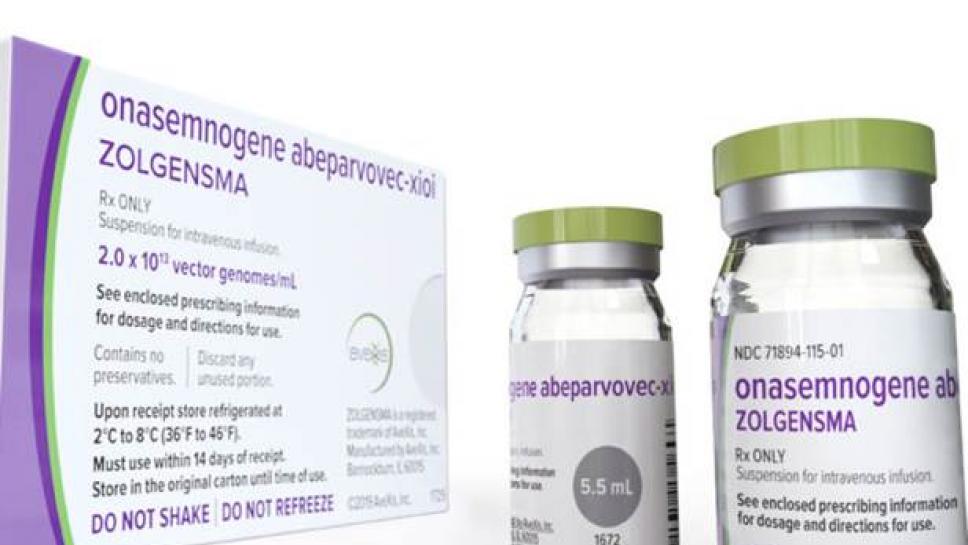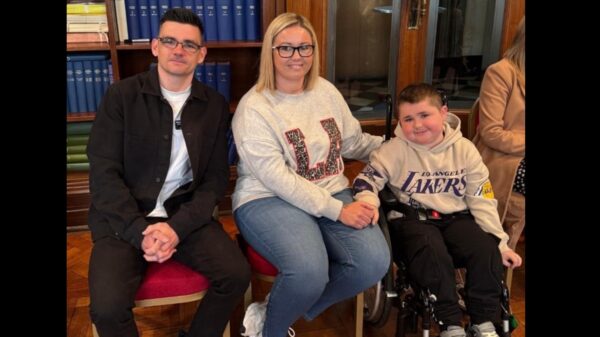MDUK are pleased to report that the pause of treatment with Zolgensma in children with type 1 SMA aged older than 12 completed months has been lifted.
Zolgensma Access Update

On January 9th 2023, following a small number of children having suspected significant adverse drug reactions affecting the liver following the administration of Zolgensma, NHS funded treatment with Zolgensma in England was temporarily paused in children older than 12 months whilst the Medicines and Healthcare products Regulatory Agency (MHRA) reviewed all available data and adverse incident reports.
On February 14th 2023, SMA UK, Treat SMA and MDUK made a joint submission to MHRA detailing insights, experiences, questions and concerns from the SMA community relating to the temporary change in eligibility for Zolgensma. Thank you to everyone who shared their experiences to help contribute to that submission.
The Medicines and Healthcare products Regulatory Agency (MHRA) has updated patient groups and clinicians with the following information:
I am writing to let you know that the pause of treatment with Zolgensma in children with type 1 SMA aged older than 12 completed months has been lifted. This means that children with type 1 SMA who are over 12 months old and within the scope of the drug’s European Medicines Agency marketing authorisation may be assessed for treatment if considered appropriate. This is via the NHS England March 2021 agreement.
This does not impact NICE’s recommendation of Zolgensma as an option for treating type 1 SMA in babies up to 12 months.
The Medicines and Healthcare products Regulatory Agency (MHRA) considered all the available data including information and adverse incident reports submitted through the Yellow Card scheme, the published literature, responses from our international regulatory partners, a submission from Spinal Muscular Atrophy Patient Group representatives and data from the UK SMA Patient Registry. The MHRA sought independent advice on the review from the Paediatric Medicines Expert Advisory Group of the Commission on Human Medicines and invited experts in hepatology.
The conclusion of their review is that there is currently insufficient evidence to determine an association with a patient’s age or weight and hepatotoxicity (adverse drug reactions affecting the liver). Their experts noted that hepatotoxicity is a well-known and recognised adverse effect associated with this gene therapy. They also noted the plausible relationship between the administration of Zolgensma and adverse liver reactions in the cases presented to them given that the small number of children who experienced these reactions did so after receiving Zolgensma. They concluded that in some of the cases this may have been due to idiosyncratic drug induced liver injury (liver injury which does not occur in most cases of patients receiving the drug), which was not associated with the patient’s weight or age.
The MHRA and its Expert Advisory Groups agreed that this issue should continue to be kept under close review and that members of the National MDT (NMDT) and other teams caring for these patients should continue to submit comprehensive expedited Yellow Cards to them to enable the rapid investigation of any potential safety concerns. Please use the Yellow Card scheme website to report any suspected adverse drug reactions associated with Zolgensma.

